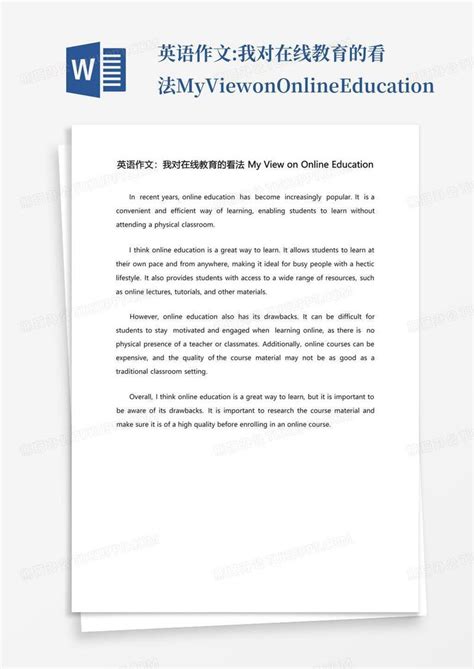科技的看法英语作文80词
Title: Perspectives on Technology
Technology has become an inseparable part of our daily lives, shaping the way we communicate, work, and live. In this essay, we will explore various perspectives on technology, its impact on society, and the importance of responsible usage.
Introduction
Technology, encompassing everything from smartphones to artificial intelligence, has revolutionized the way we interact with the world. While some view it as a boon, others perceive it as a bane, highlighting the need for a nuanced understanding of its implications.
Positive Perspectives
1.
Enhanced Connectivity
: Technology has bridged geographical barriers, enabling instantaneous communication across the globe. Social media platforms facilitate networking and information sharing, fostering a sense of community.2.
Efficiency and Productivity
: Automation and digital tools streamline processes, boosting efficiency in various sectors. From manufacturing to healthcare, technology optimizes resource utilization and enhances productivity.3.
Innovation and Progress
: Technological advancements drive innovation, leading to breakthroughs in medicine, renewable energy, and beyond. These innovations have the potential to address pressing global challenges and improve quality of life.Negative Perspectives
1.
Social Disconnect
: Despite enhancing connectivity, technology has paradoxically led to social disconnect. Excessive screen time diminishes facetoface interactions, potentially eroding interpersonal relationships.2.
Job Displacement
: Automation threatens traditional employment models, leading to concerns about job displacement and economic inequality. The rapid pace of technological evolution necessitates continuous upskilling to remain relevant in the workforce.3.
Privacy and Security Concerns
: The proliferation of datadriven technologies raises privacy and security concerns. Instances of data breaches and surveillance underscore the need for robust safeguards to protect individual rights.Balanced Perspective
While acknowledging the transformative power of technology, it is imperative to adopt a balanced perspective that accounts for both its benefits and drawbacks. Here are some guiding principles for responsible technology usage:
1.
Digital Literacy
: Promote digital literacy programs to empower individuals with the knowledge and skills to navigate the digital landscape critically. Educating users about online safety, privacy settings, and media literacy cultivates responsible digital citizenship.
2.
Ethical Design
: Encourage the development of technology with ethical considerations at its core. Designing systems that prioritize user wellbeing, equity, and inclusivity fosters a more sustainable and equitable digital ecosystem.3.
Regulatory Frameworks
: Advocate for regulatory frameworks that strike a balance between innovation and protection. Legislation addressing data privacy, algorithmic transparency, and antitrust measures can mitigate the negative consequences of unchecked technological advancement.Conclusion
In conclusion, technology is a doubleedged sword, presenting both opportunities and challenges for society. By embracing a balanced perspective and implementing responsible practices, we can harness the transformative potential of technology while mitigating its adverse effects. Let us strive towards a future where technology serves as a force for positive change, enriching lives and advancing collective wellbeing.
References:
Bødker, S. (2020).
Responsible Technology: A Research Agenda.
Interactions, 27(4), 12–15. https://doi.org/10.1145/3408743Floridi, L. (2020).
The Fight for Digital Sovereignty.
Nature Electronics, 3(9), 509–510. https://doi.org/10.1038/s4192802004873World Economic Forum. (2021).









